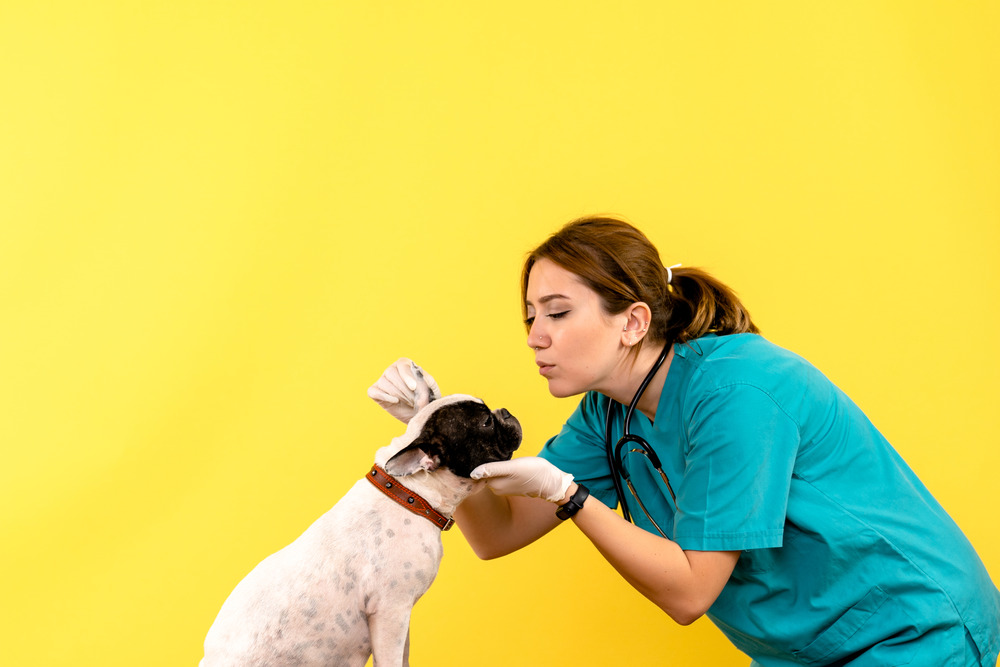Welcoming a new pet into your home is an exciting adventure! 🐾 Whether you’ve adopted a playful puppy, a curious kitten, or any other furry friend, ensuring their health and well-being is paramount. This blog will guide you through a comprehensive health check checklist that every new pet parent should follow. With rich statistics and clear tables, you’ll be well-equipped to provide the best care for your new companion. Let’s dive in! 🌟

Understanding Your Pet's Health Needs
Before we get into the checklist, it’s essential to understand the common health issues that pets face. According to the American Veterinary Medical Association (AVMA), approximately 25% of pets experience health problems in their first year. Regular check-ups and preventive care can significantly reduce this risk.
Common Health Issues in Pets
| Health Issue | Percentage of Pets Affected | Recommended Action |
|---|---|---|
| Obesity | 40% | Regular exercise & diet |
| Dental Disease | 80% | Regular dental check-ups |
| Parasites | 30% | Monthly preventive treatments |
| Skin Allergies | 15% | Consult a vet for allergies |
The Ultimate Health Check Checklist
Now that you have a better understanding of potential health issues, let’s explore the ultimate health check checklist for new pet parents. This checklist will help you keep track of your pet’s health and ensure they receive the necessary care.
1. Schedule a Veterinary Visit 🏥
Your first step should be to schedule a visit with a veterinarian. This is crucial for establishing a health baseline for your pet. During this visit, the vet will:
- Conduct a thorough physical examination.
- Discuss vaccination schedules.
- Recommend spaying or neutering if applicable.
2. Vaccinations 💉
Vaccinations are vital for preventing serious diseases. Here’s a quick overview of essential vaccinations for dogs and cats:
| Pet Type | Core Vaccinations | Non-Core Vaccinations |
|---|---|---|
| Dogs | Rabies, Distemper, Parvovirus | Bordetella, Lyme Disease |
| Cats | Rabies, Feline Viral Rhinotracheitis | Feline Leukemia, Feline Immunodeficiency |
Make sure to keep a record of your pet’s vaccination history. You can find more information on vaccination schedules at the American Animal Hospital Association.
3. Nutrition and Diet 🍽️
A balanced diet is crucial for your pet’s health. According to the Association for Pet Obesity Prevention, 60% of cats and 56% of dogs are classified as overweight or obese. Here are some tips for maintaining a healthy diet:
- Choose high-quality pet food that meets your pet’s specific needs.
- Monitor portion sizes to prevent overeating.
- Consult your vet for dietary recommendations.
4. Regular Exercise 🏃♂️
Just like humans, pets need regular exercise to stay healthy. The amount of exercise required varies by breed and age. Here’s a general guideline:
| Pet Type | Recommended Daily Exercise Time |
|---|---|
| Dogs | 30-120 minutes |
| Cats | 15-30 minutes |
Engaging in playtime and outdoor activities not only keeps your pet fit but also strengthens your bond. For fun ideas on how to keep your pet active, check out PetMD.
5. Grooming and Hygiene ✂️
Regular grooming is essential for your pet’s health. It helps prevent skin issues and keeps their coat shiny. Here’s a basic grooming schedule:
| Pet Type | Grooming Frequency |
|---|---|
| Dogs | Every 4-6 weeks |
| Cats | Every 2-4 weeks |
Don’t forget to check your pet’s ears, teeth, and nails during grooming sessions. Regular dental care can prevent dental disease, which affects 80% of dogs by age three.
6. Parasite Prevention 🦠
Parasites can pose serious health risks to pets. It’s essential to have a parasite prevention plan in place. Here’s a breakdown of common parasites and their prevention:
| Parasite | Symptoms | Prevention Methods |
|---|---|---|
| Fleas | Itching, hair loss | Monthly topical treatments |
| Ticks | Lethargy, fever | Tick prevention collars |
| Heartworms | Coughing, fatigue | Monthly heartworm prevention |
For more information on parasite prevention, visit the Centers for Disease Control and Prevention.
7. Regular Check-Ups 📅
Regular veterinary check-ups are essential for maintaining your pet’s health. Aim for at least one visit per year, or more frequently for older pets. During these visits, your vet will:
- Monitor your pet’s weight.
- Conduct blood tests if necessary.
- Update vaccinations.
Conclusion
Becoming a new pet parent is a rewarding experience filled with love and joy. By following this ultimate health check checklist, you can ensure that your furry friend stays healthy and happy. Remember, regular veterinary visits, a balanced diet, and proper exercise are key components of your pet’s well-being. 🐶🐱
For more resources on pet care, consider visiting The Humane Society. Your new companion deserves the best, and with the right knowledge and care, you can provide just that! 🥰




